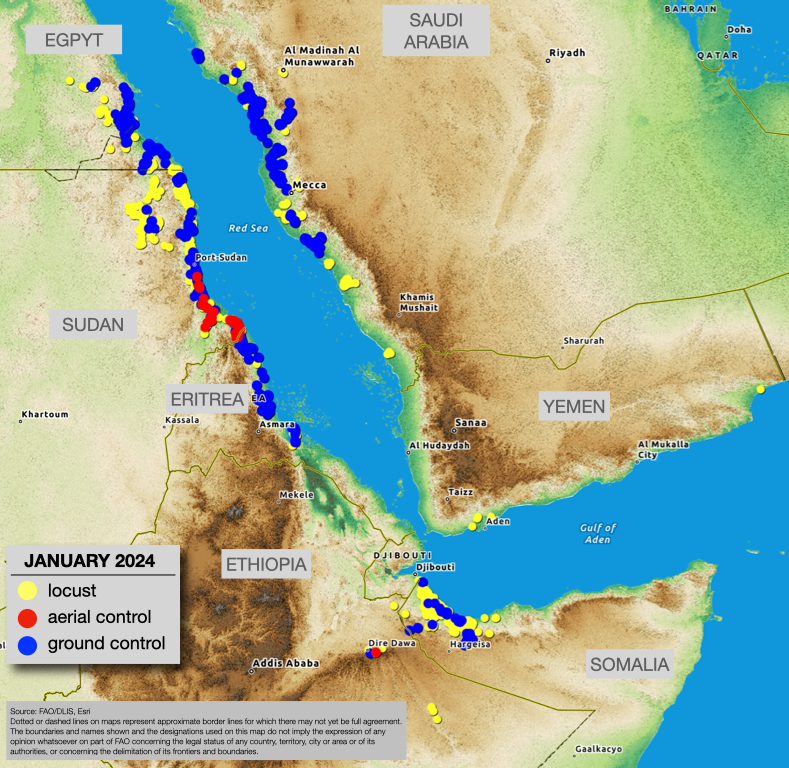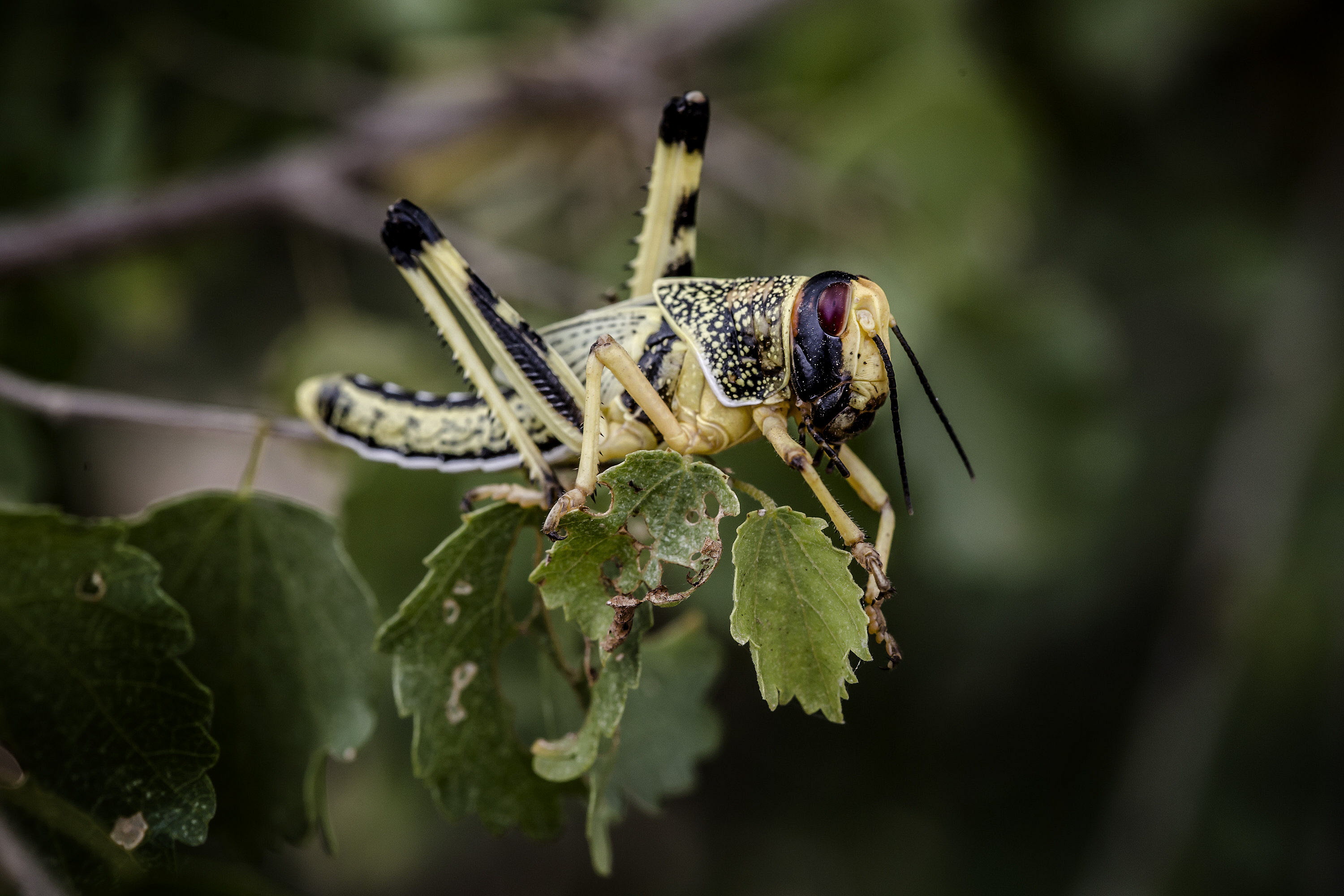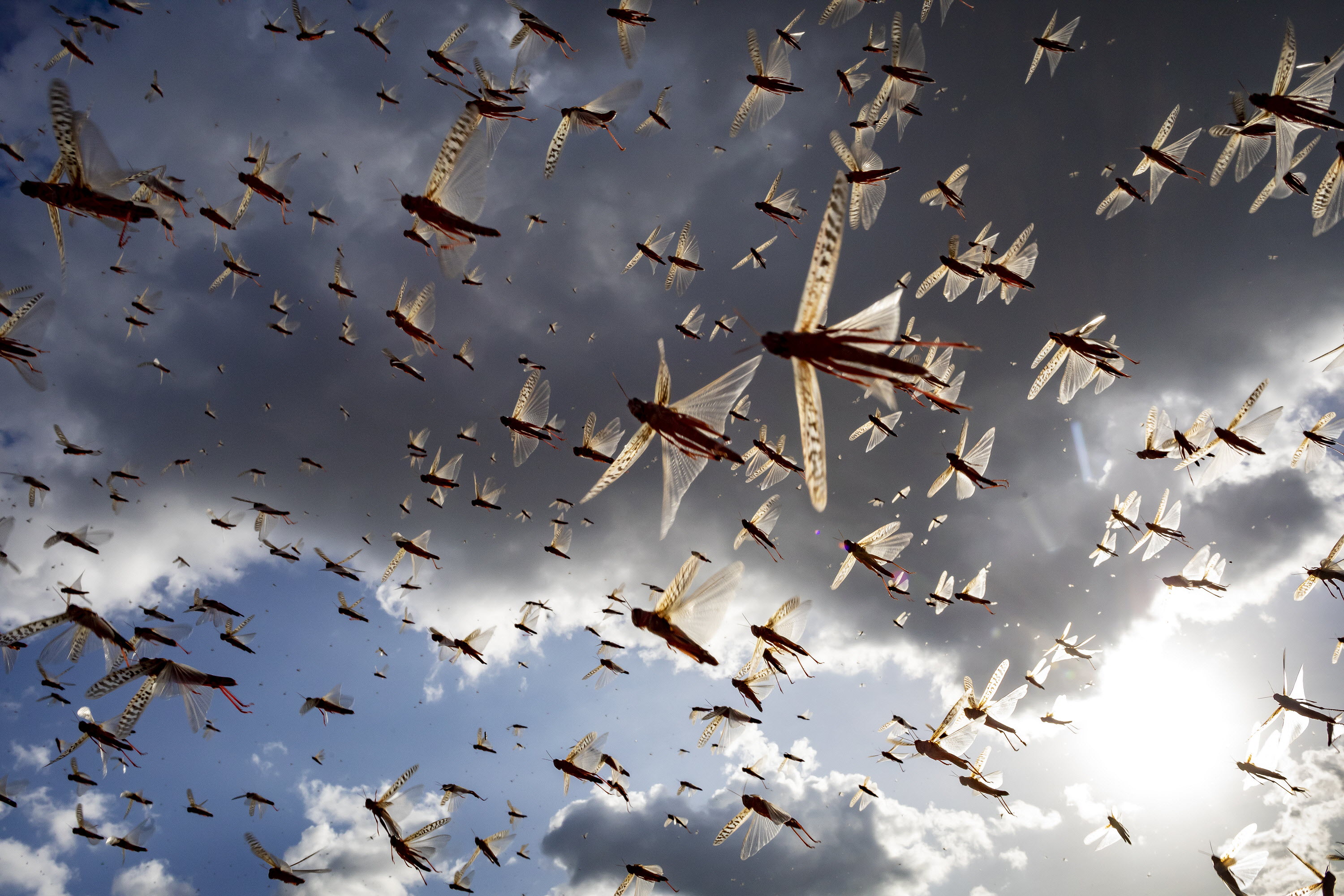5 February 2024: five outbreaks in Central Region

Key Points
- There a five Desert Locust outbreaks along the coast of the Red Sea and Gulf of Aden: Egypt, Eritrea, Saudi Arabia, Somalia, and Sudan.
- Current situation: Groups and swarms of the first winter breeding generation as well as the second generation of new hatching and hopper groups and bands.
- Control: Operations increased in January compared to December.
- February–March: Locusts are likely to decrease because of control operations, diminished rainfall, and drying vegetation in March, but countries must maintain survey and control efforts.
There are five Desert Locust outbreaks along the coast of the Red Sea and Gulf of Aden in the Central Region during January.
The first winter generation continued with hopper groups, bands, adult groups, and small swarms that were treated by Sudan, Eritrea, Saudi Arabia, Egypt, and northwest Somalia as well as a few small swarms that appeared in Ethiopia. Aerial control was also done in Sudan and Ethiopia while Somalia used only biopesticides. In Yemen, adult groups copulated on the southeast coast while the situation along the Red Sea coast is unknown. The second generation occurred during the first half of January in Eritrea and Sudan and the second half in Saudi Arabia and Somalia.
During the forecast, second-generation population will continue along the Red Sea and Gulf of Aden coasts with new adults starting at the end of February. The weather models indicate that locusts are likely to decrease because of control operations, diminished rainfall, and drying vegetation in March. All countries must maintain survey and control efforts.
No significant developments are likely in the Western and Eastern Regions.



